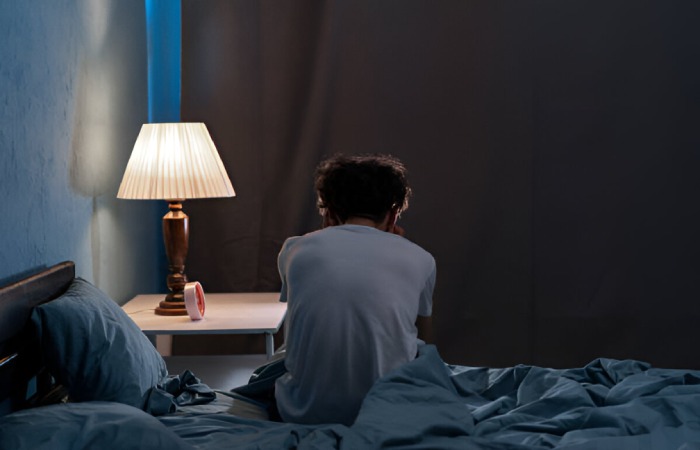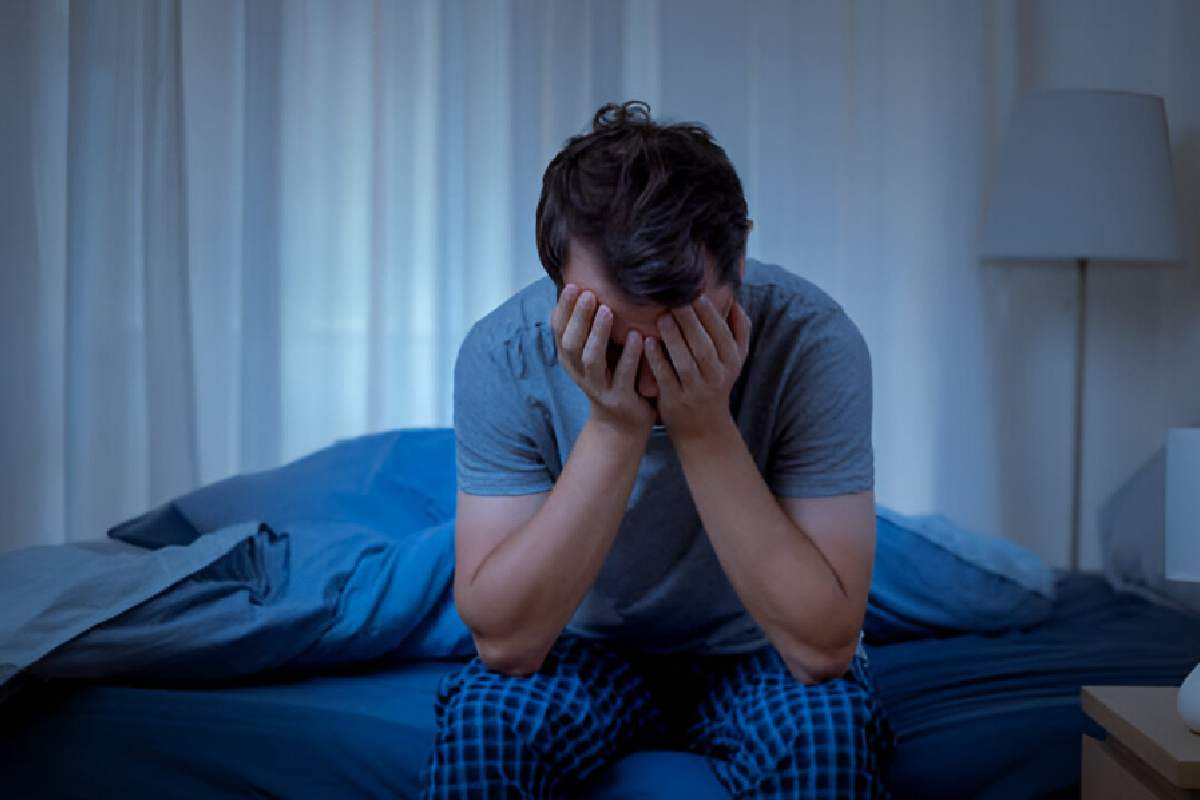Table of Contents
What Is Night Fall
Nightfall, also known as nocturnal emission, is a natural and involuntary release of semen during sleep, typically occurring in males during adolescence and early adulthood. This biological process is the body’s way of releasing excess sperm and sexual tension, often associated with sexual dreams.
Causes of Night Fall
- Nightfall is a natural process during sleep in adolescent boys and young men during puberty.
- Hormonal changes like increased sperm production and heightened sexual desire are the main causes.
- Lack of sexual activity or release can trigger an erection and ejaculation.
- Overthinking or sexual thoughts can lead to sexual arousal while asleep.
- Unhealthy lifestyle factors like lack of physical activity, irregular sleeping habits, heavy meals late at night, or watching sexual content before bedtime can contribute to frequent nightfall.
- Stress and anxiety can affect physical functions, leading to changes in sleep patterns and hormone levels.
- Weak pelvic floor muscles may result in inability to control ejaculation during sleep. Strengthening these muscles through regular exercise can help reduce nightfall frequency.
Is It Safe Night Fall
- Nightfall, or nocturnal emission, is a natural part of male development and a sign of the reproductive system’s proper functioning.
- It occurs during puberty when testosterone, the male sex hormone, surges.
- Excess semen may be released during sleep, usually when a person is not sexually active or doesn’t engage in regular ejaculation.
- Nightfall is not a disease or health problem, and its frequency may vary.
- Frequency may decrease with age or regular sexual activity.
- Frequent nightfall can cause distress, fatigue, or anxiety, potentially linked to stress, poor sleep habits, or excessive exposure to sexual content.
- Understanding nightfall can help remove fear, especially for teenagers and young adults.
How to Manage Nightfall
- Nightfall is a natural process, especially common during adolescence.
- Overuse can cause stress, fatigue, and sleep disruption.
- Lifestyle changes include a balanced diet, regular exercise, meditation, and relaxation practices.
- Avoiding erotic content before sleep can prevent sexual dreams.
- Consistent sleep routine and position, and staying focused during the day can reduce nightfall likelihood.
- Nightfall doesn’t require medical treatment unless excessive or emotionally disturbing.
- Consultation with a doctor or counselor is recommended if concerns persist.
Diet Tips to Reduce Night fall Frequency
-
Avoid processed meats as they may contain additives that affect hormonal health.
-
Eat papaya regularly to cool body heat and reduce nightfall triggers.
-
Reduce salty foods which can increase body heat and lead to restlessness at night.
-
Drink warm milk before bed to promote relaxation and better sleep.
-
Avoid smoking as it reduces blood flow and affects sexual control.
-
Eat citrus fruits for vitamin C to strengthen immunity and improve nerve health.
-
Limit oily street food to prevent digestive stress and hormonal imbalance.
-
Include spinach for iron and folate to support reproductive health.
-
Avoid ice cream before bed as cold dairy can disturb digestion and sleep.
-
Eat carrots for vitamin A to improve reproductive organ function.
-
Avoid red meat excess as it may heat the body and disturb sleep patterns.
-
Eat cucumbers to cool the body and keep hormones balanced.
-
Avoid overeating at dinner to keep the body calm during sleep.
-
Eat dates in moderation for energy without overstimulating the body.
-
Avoid packaged snacks with preservatives that harm hormonal balance.
-
Eat fenugreek leaves for cooling effect and improved digestion.
-
Drink herbal teas like chamomile to relax nerves and aid sleep.
-
Avoid sugary desserts at night to keep the nervous system calm.
-
Eat peas for plant-based protein that supports reproductive health.
-
Reduce carbonated drinks that may cause restlessness and poor sleep.
-
Include turmeric in food for anti-inflammatory benefits to nerve health.
-
Avoid strong spices like chili powder in dinner meals.
-
Eat apples to regulate digestion and improve overall health.
-
Avoid eating just before sleeping to allow proper digestion.
-
Eat flaxseeds for omega-3 fatty acids that promote nerve health.
-
Avoid high-fat cheese before bed as it may disturb sleep.
-
Eat pomegranates for antioxidants and better blood flow.
-
Reduce fast food intake to prevent hormonal imbalance.
-
Eat water-rich fruits like watermelon to cool the body.
Lifestyle Changes to Manage Night Fall

-
Maintain a regular sleep schedule.
-
Exercise daily to reduce stress.
-
Avoid spicy food at night.
-
Limit screen time before bed.
-
Practice meditation for relaxation.
-
Wear comfortable night clothes.
-
Avoid overeating before sleep.
-
Stay hydrated during the day.
-
Keep bedroom cool and calm.
-
Engage in hobbies to divert mind.
Night fall in Relation to Stress and Anxiety
-
Stress increases nightfall chances.
-
Anxiety disturbs hormonal balance.
-
Overthinking triggers night emissions.
-
Mental pressure affects control.
-
Poor sleep worsens nightfall.
-
Emotional tension heats body.
-
Anxiety weakens reflex control.
-
Stress disrupts sleep cycles.
-
Worry increases body arousal.
-
Relaxation reduces nightfall risk.
How parents should talk to teens about night fall
-
Speak calmly and respectfully.
-
Use simple, clear language.
-
Explain nightfall is natural.
-
Avoid shame or blame.
-
Encourage open questions.
-
Give correct health facts.
-
Share emotional support.
-
Respect teen’s privacy.
-
Address myths honestly.
-
Promote healthy habits.
Night Fall and Ssocietal Taboos.
-
Nightfall is often misunderstood.
-
Many cultures avoid discussing it.
-
Myths create fear in youth.
-
Silence leads to misinformation.
-
Taboos discourage medical advice.
-
Shame affects mental health.
-
Social stigma promotes secrecy.
-
Lack of education worsens myths.
-
Open talks can reduce stigma.
-
Awareness encourages healthy understanding.
Conclusion
Excessive nightfall, daily or multiple times a week, may indicate psychological stress, hormonal imbalance, or mental relaxation. If it causes sleep disturbances, emotional distress, or fatigue, consulting a doctor or counselor is recommended.

